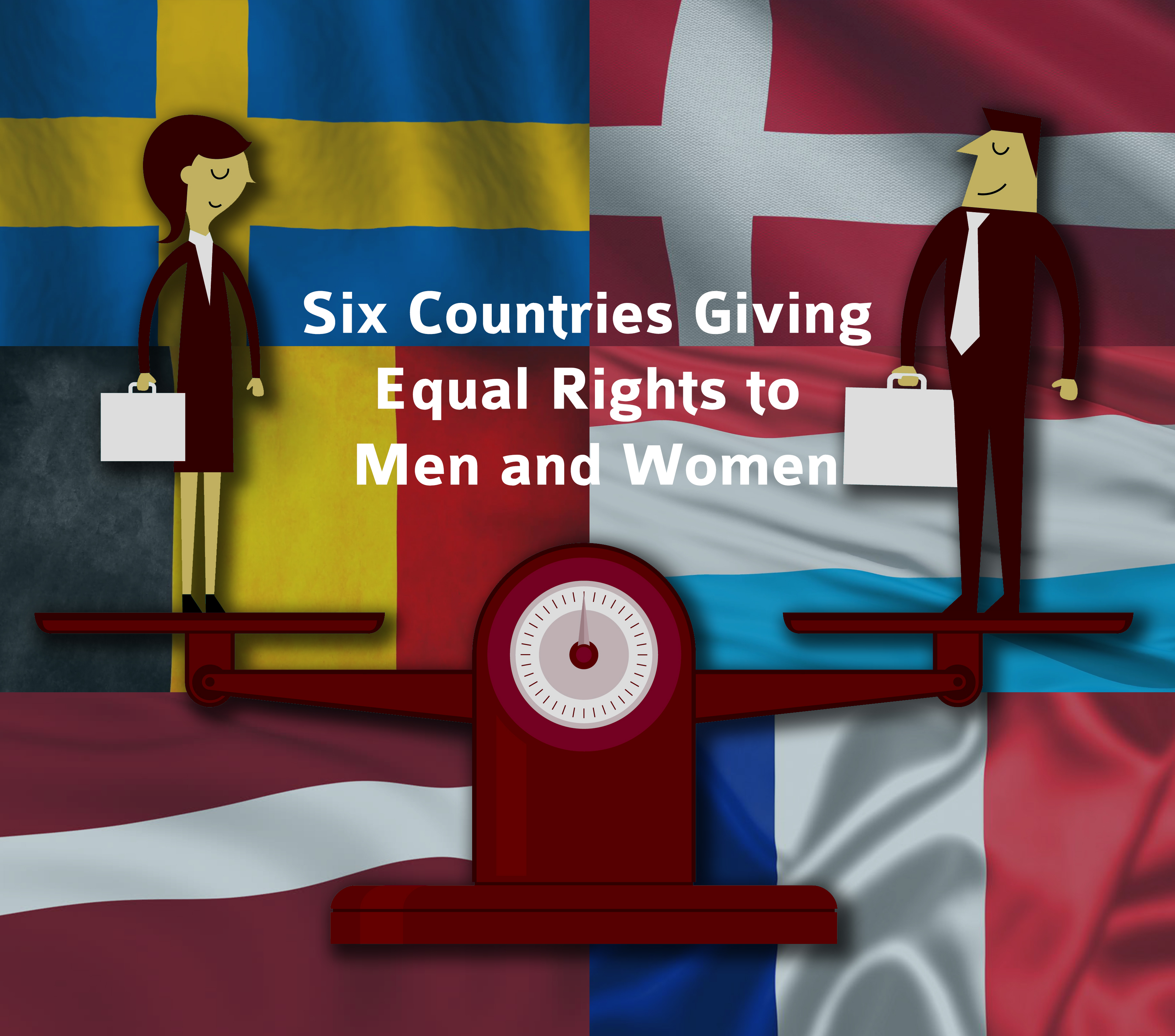With the eve of technology trend the world is also moving towards the equality of gender, instead it is, but its speed is slow. According to the World Bank report, there are only six countries that are giving equal rights to men and women. It is the increased ratio which starts from zero about a decade before when the organization began calculating states by how efficiently they guarantee economic and legal equality between the men and women.
With the calculations of CNN, the rate of progress means that women don’t get equal rights until 2073 in the areas studied by the World Bank. The six countries France, Sweden, Belgium, Latvia, Denmark, and Luxembourg got 100 marks out of 100. Scored in the fields like Law, Women, and Business.
Among these countries France shows the significant improvement in the last decade for the implementation of domestic violence law, familiarizing paid parental leave and giving the criminal penalties for sexual harassment at the workplace.
Score of Middle East Countries
On the other hand, the countries of Sub-Saharan and Middle East scored average with the ratio of 47.37 which reflects that in these regions those typical nations is just giving the half of the legal rights to women as compared to men. The study intends to create a mature understanding of how the employment of women and entrepreneurship affected by legally discrimination laws and regulations at each point in their professional careers by limiting their equality of opportunity. While it didn’t calculate cultural and social factors or else how effectively laws imposed.
The analyzed criteria is getting married, having children, visiting places, starting a job, getting paid, running a business, managing assets and receiving the pension. Further, these questions categorized as can a woman move outside of her home as similar to a man? Also, is there legislation specially treated violence at domestic level?
As compared to a decade ago, the worldwide average of women rights increased greater than four and a half points to about 74.71. However, the score reflects that women receive three-quarters of legal rights than men in the average nation.
Scores of Germany, Australia, UK and United States in Women Rights
Among the top 50 globally, the count of UK is 97.5, Australia has 96.88, the score of Germany measured 91.88, and the United States scored 83.75%. President of World Bank Group Interim Kristalina Georgieva said that if women receive equal rights to get their absolute potential, the world would not be only fairer, it would be further prosperous as well. It is changing but not so rapidly while 2.7 billion women are still lawfully striped from receiving the same job choices as men. The aim of the study is to focus on the economic benefits of assuring legal gender equality.
Another report in 2015 from the McKinsey Global Institute reflects that removing the gender gap in the labor force could add 28 trillion dollars to the worldwide GDP, approximately equal to the size of Chinese and the United States combined economy.
Laws still Hold Women Back
The United States scored just 20 in the category of having children which is too low. While the criteria analyzed the laws about paternity, parental and maternity leave. The report reflects that the policymakers have an interest in keeping women from separating from the labor force after the birth of their children have effects on their score of the economy which reflects that it starts for reform.
The overall score of Saudi Arabia in the report is about 25.63 which was world widely worst score whereas, Syria, Iran, Sudan, the UAE and Qatar all have a score below than 35. However, according to the report’s results, there is an optimistic trend in Sub-Saharan Africa, South Asia, and East Asia as these regions categorized much improved nations as compared to the last decade.
The Democratic Republic of Congo ranked as the most improved country as it scored 70 in 2017 whereas ten years ago its score was 42.50. The report also told that the improvement based on granting the reforms to the married women. Oppurtunity to open bank accounts, to register a business, get jobs, sign contracts, and choose to live anywhere as men do. Moreover, the removal of the legal requirement that wives follow their husbands in the country.
In the report it seemed that maximum reforms surround about sexual harassment laws, delegated nondiscrimination in a way to honor and that one-third of the significant reforming economies by removing the job restrictions on female night work or specific job types.
Gender Equality is Critical for Economic Growth
Georgieva states in the report that for economic growth, gender equality is a crucial component. She further said that women are half of the total world’s population and they have to play their role to create a more prosperous society. But if the laws are holding them back, then they won’t succeed in playing it. Furthermore, she also wrote that there are several laws and regulations which restrict women from being a part of the workforce or initialize their business. This discrimination has long-lasting effects on the economic inclusion and labor force contribution of women. We can boost governments to guarantee the equal and full participation of women by making the economic case.








